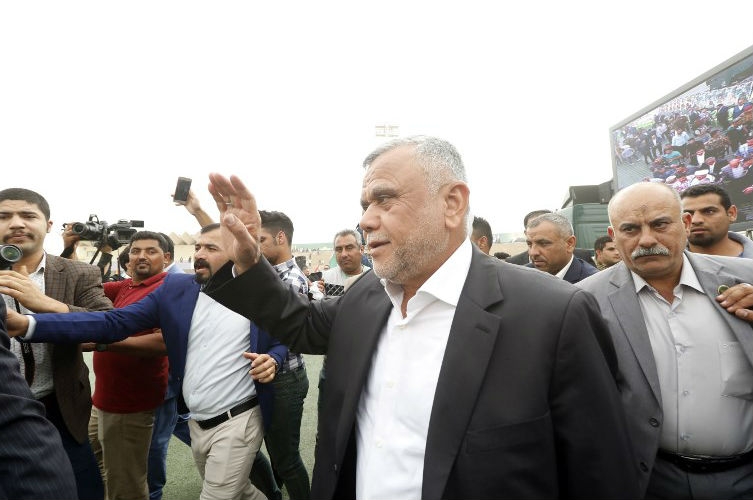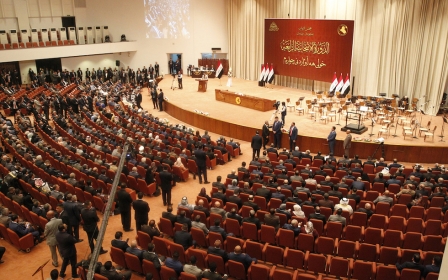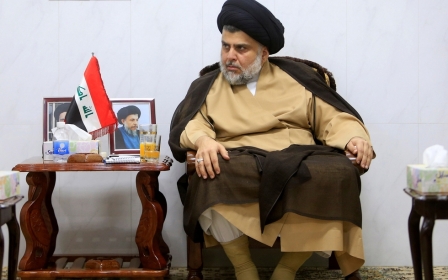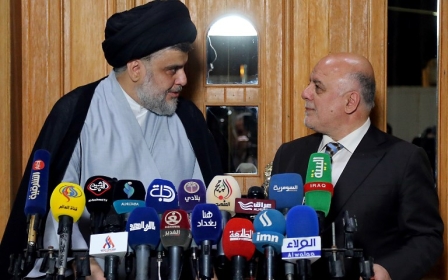Hadi al-Amiri withdraws candidacy for Iraqi prime minister

Hadi al-Amiri, one of the most powerful figures in Iraq, has withdrawn his candidacy for prime minister, putting the country one step closer to forming a government after months of political stagnation.
Amiri heads the Fatah Alliance, an electoral bloc which came second in May's inconclusive national election.
His coalition had been vying to build the largest bloc which would form the government, with him as prime minister.
"I would like to announce to the dear Iraqi people the withdrawal of my candidacy for prime minister, to open the way for serious dialogue to elect a prime minister and his government according to the vision of the supreme religious authority," he said in a news conference on Tuesday.
Amiri's Fatah Alliance is composed of political groups tied to Iran-backed Shia militias who helped government forces dislodge the Islamic State (IS) group from the third of Iraq they seized four years ago.
His Badr Organisation, which was the military wing of the supreme Islamic Iraqi council, controls the interior ministry.
Amiri's alliance has been in advanced talks with Shia cleric Muqtada al-Sadr to form a new alliance in recent days, the Reuters news agency reported.
Sadr, whose Sairoon bloc scored a stunning victory in the 12 May election, portrays himself as a fierce nationalist opposed to both US and Iranian interference in Iraq.
He had formed an alliance with incumbent Prime Minister Haider al-Abadi since June, but that has now fallen away.
On Saturday, Iraq's parliament elected Sunni lawmaker Mohammed al-Halbousi, the Fatah Alliance's candidate, as speaker.
Parliament had been due to elect a speaker and two deputies during its first meeting on 3 September, but failed to do so as lawmakers were unable to determine which competing bloc had the most seats in May's election.
Halbousi's election marks the start of a 90-day process outlined in the constitution, designed to eventually lead to a new government.
The lists elected during legislative polls must first form coalitions and then next elect a new president.
The bloc with the most members appoints the prime minister and presides over the formation of the next government.
New MEE newsletter: Jerusalem Dispatch
Sign up to get the latest insights and analysis on Israel-Palestine, alongside Turkey Unpacked and other MEE newsletters
Middle East Eye delivers independent and unrivalled coverage and analysis of the Middle East, North Africa and beyond. To learn more about republishing this content and the associated fees, please fill out this form. More about MEE can be found here.




